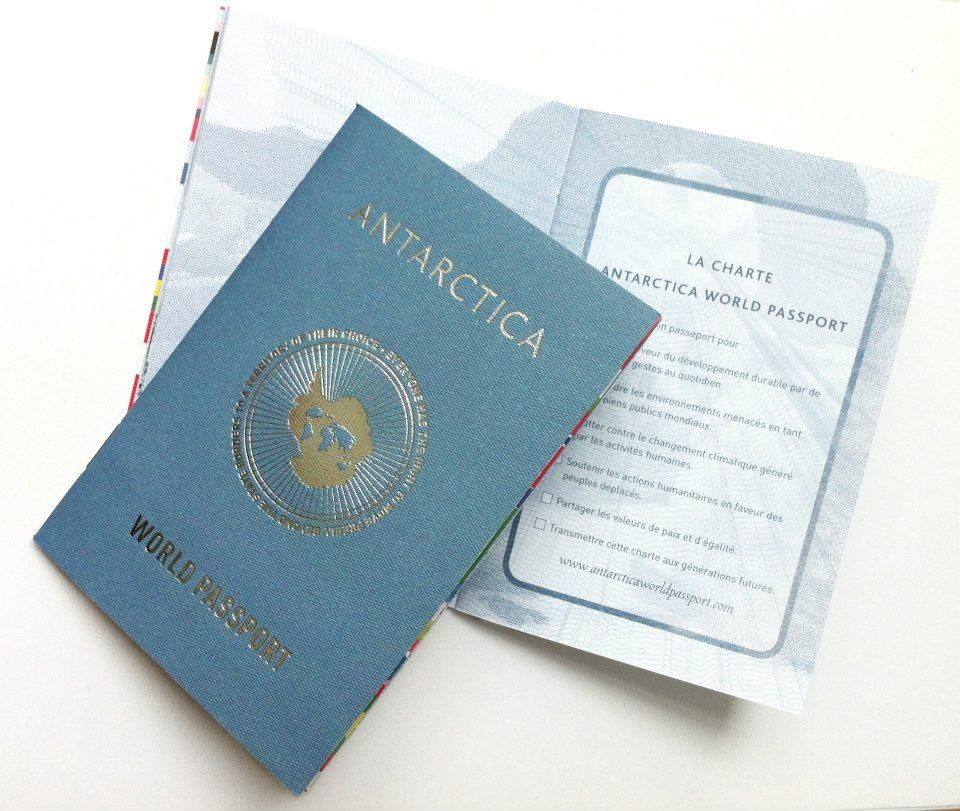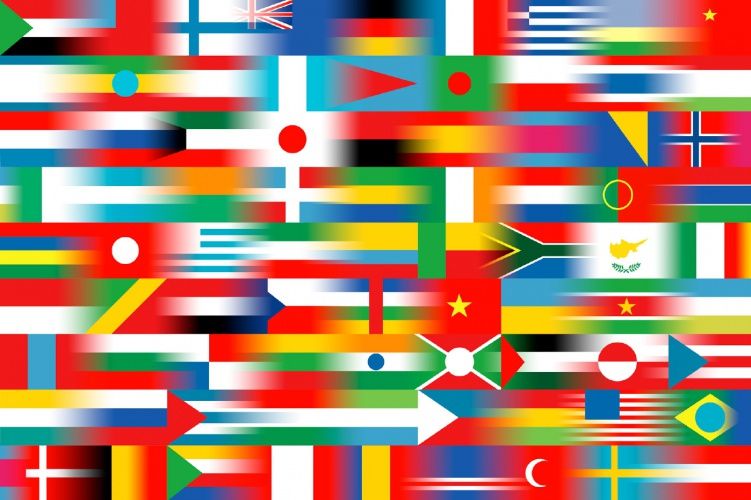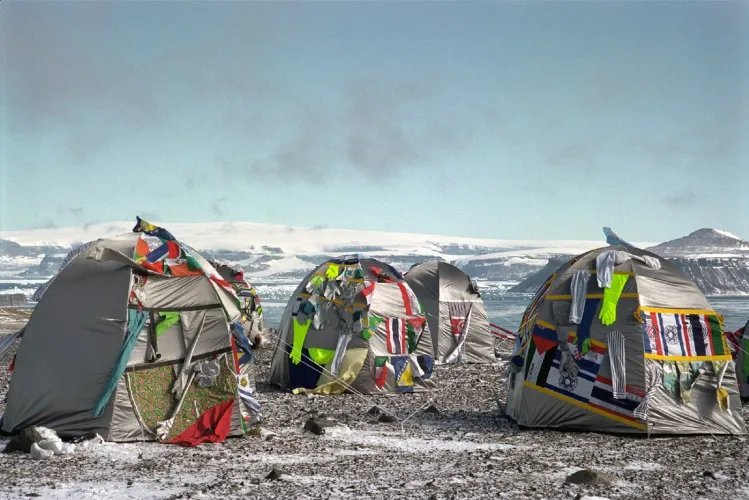You Can Get an Antarctic Passport
Pledge your loyalty to the southernmost continent—and to the ideals of peace, equality and sustainability
Are you a citizen of Antarctica? The answer has to be unequivocally, "no"—Antarctica’s not a country, it’s a continent that will never be a nation. But no biggie, say artists Lucy and George Orta. They’re giving out passports to Antarctica, anyway, reports Allison Meier for Hyperallergic.
So far, 53 countries are privy to the Antarctic Treaty, which in 1959 stipulated that the southernmost continent “shall continue forever to be used exclusively for peaceful purposes and shall not become the scene or object of international discord.” But the Ortas don’t see that as a barrier to issuing passports for the chilly, barren continent. Rather, their art is inspired by and centered around the peaceful possibilities of a continent devoted to scientific research and human accord.
Meier writes that the Ortas have developed a program called the Antarctica World Passport as “an advocacy tool to engage people around the world in the importance of a remote place most of us will never visit.” People who commit to tenets of sustainability, peace and equality can request a virtual passport online or visit the couple’s “Antarctic World Passport Delivery Bureau” at their exhibitions.
The couple were commissioned to create the passport program and their arts and awareness exhibition to the continent at the 2007 End of the World Biennial, an art event that brought artists from all over the world to celebrate Earth’s southernmost climes. Later that year, the Ortas traveled to Antarctica to raise their “Antarctic Flag”—a kaleidoscopic flag combining the flags of all nations that represents the coexistence of all world identities. Their trip to Antarctica also included the construction of 50 handmade dwellings stitched from national flags, clothing and other objects that symbolize Antarctica’s borderless possibilities.
So long as an official passport to Antarctica remains impossible, this passport—which the artists' website calls a "universal passport for a continent without borders, common good of humanity”—seems like a good alternative. So far, more than 12,000 people have received their own.
The passports are available at Antarctica, the Ortas’ solo show currently at the Jane Lombard Gallery in New York, based on the couple’s 2007 Antarctic expedition. If the passport were hypothetically real, would it revoke an owner’s United States citizenship? Perhaps—people who apply for foreign nationalities with the intention of giving up their U.S. nationality lose their rights as nationals. But for now, there’s nothing keeping anyone from asserting their rights and responsibilities as an Antarctic citizen—and a citizen of the broader world.
/https://tf-cmsv2-smithsonianmag-media.s3.amazonaws.com/accounts/headshot/erin.png)



/https://tf-cmsv2-smithsonianmag-media.s3.amazonaws.com/accounts/headshot/erin.png)